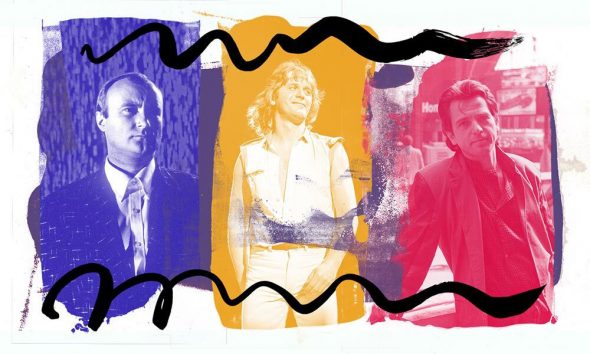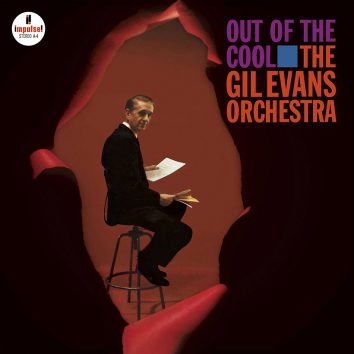‘Sea Change’: Beck Finds Maturity And Confidence For The New Millennium
Californian pacesetter Beck was 32 when he recorded ‘Sea Change,’ and reviewers enthused that they’d never heard him write and perform with such maturity.

When Beck stepped boldly into the 21st century with the album he released in 2002, reviewers enthused that they’d never heard him write and perform with such maturity. The Californian pacesetter was now 32 years old, with nearly a decade of recording experience under his belt, and was unveiling Sea Change.
Listen to Sea Change on Apple Music and Spotify.
After 1999’s Midnite Vultures, ever open to new avenues of expression, Beck took on a surprise big-screen role, acting in his friend Steve Hanft’s 2001 independent picture Southlander. Fellow musicians Beth Orton and Elliott Smith also appeared in the film.
Beck later discussed that project in a phone interview with Record Collector, explaining that Hanft — whom he met when he was about 19, and who directed the “Loser” and “Where It’s At” videos — “wrote me into it, but he wanted me to play myself how he remembered me when he first met me.”
A familiar darkness
When Sea Change arrived the following year, the resemblance was also widely noted between the dark feel of the record and that of 1998’s Mutations. It was no coincidence that both projects had him working with the British producer whose work with Radiohead Beck admired, Nigel Godrich.
“Beck has rarely performed with such maturity and confidence,” beamed the Billboard review, “breathing a rich, often haunting baritone into songs that seem to follow a plotline thread of despair after the end of a relationship.”
Indeed, the mood of the dozen new songs on display was markedly melancholic, as Beck came to terms with the end of his nine-year relationship with stylist Leigh Limon. Rolling Stone went so far as to compare Sea Change to Blood On The Tracks, the 1975 album Bob Dylan made around the time of his estrangement from his then-wife Sara.
“After reshuffling any number of styles and perfecting his half-ironic deadpan,” observed the New York Times, “Beck has now come up with an entire album of slow songs about heartbreak and desolation, solitude and death.”
A new openness in Beck’s lyrical approach was certainly in plain sight, largely devoid of the whip-smart irony that had been his trademark. From the acoustic opener “The Golden Age” onwards, it was matched by an affecting simplicity and directness in the song constructions themselves, sometimes elegantly illustrated with lush strings.
Beck’s album contained such titles as “Lonesome Tears,” “Lost Cause” and “Already Dead,” as well as the reflective “Guess I’m Doing Fine.” It was far removed from the rambunctious verve of “Where It’s At” or “Sexx Laws.” “Forlorn folk,” The Guardian called it. But when he spoke to writer Paul Lester for that newspaper, he typically chose not to show his hand about the album’s emotional motivation.
“I don’t talk too much about my personal life,” he said. “You’ll get a thousand times more of me from my music than anything I could say in an interview. When you start opening yourself up in that way, it cheapens your life.”
The album was introduced by the engaging lead promo track “Lost Cause,” followed as a single by “Guess I’m Doing Fine,” which had a video directed by Spike Jonze. Sea Change was every bit of the gear shift that its title implied, but many of Beck’s admirers were eager to make the leap of maturity with him.
The long player peaked at No.8 in the US, made the Top 10 in his stronghold of Scandinavia and was a Top 20 success in the UK, Australia and elsewhere. It went on to sit comfortably inside the Top 20 of Rolling Stone’s list of the best albums of the 2000s.
Playful on tour
After some shows early in 2002 and an appearance in the spring at the Coachella Festival, Beck teed up the LP release with an August tour of the US. There was certainly no trace of glum introspection when he arrived at the Michigan Theater in Ann Arbor, as MTV reported.
“Beck’s two-hour acoustic performance had a playful vibe throughout,” wrote Christina Fuoco. “He filled the show with sly remarks, showing a different side to his flashy, leisure-suit-wearing self. The concert was a free-for-all, with fans shouting out names of songs in hopes that Beck would perform them.
“Sporting jeans, a white button-down shirt, Converse sneakers, dishevelled hair and rosy red cheeks, Beck cracked jokes the minute he hit the stage, which looked like an unkempt music classroom.” The show featured a guest appearance by Jack White, who joined Beck on “Cold Brains” and a version of “Last Fair Deal Gone Down,” by their mutual inspiration Robert Johnson.
Laughing and joking with the audience and cracking up as he attempted to play “Sissyneck,” Beck eschewed most of his more beat-driven hip-hop flavors. “I’ve been trying to figure out how to do the hip-hop thing live,” he said. “I’ve been studying LL Cool J’s Unplugged for 15 hours straight. I have not figured [it out]. It’ll come to me.”
A song every two days
Beck told Record Collector that the Sea Change sessions resembled those with Godrich for Mutations. “It turned into a song every two days,” he said. “Mutations we recorded and mixed in two weeks, this was probably three and a half but we got a little more ambitious I think, because we had orchestral arrangements and different musicians coming and going.”
The sessions took place at Ocean Way Studios in Los Angeles. “It was a reunion of sorts,” he said. “It was something we’d been planning for four years, talking about. 9/11 happened and then people weren’t working as much, I think we originally wanted to do this record a year and a half ago, but it took a while for people to line up.”
Listen to the best of Beck on Apple Music and Spotify.
The record repaid that perseverance, just as it continues to reward repeated listens. Beck followed its release with another North American tour in the autumn that included two nights at the Beacon Theatre in New York and another at the Universal Amphitheatre in LA. The album went gold in America in 2005; the sea change had been completed to great effect.
Read more on Beck’s catalog as part of our Behind The Albums series.












